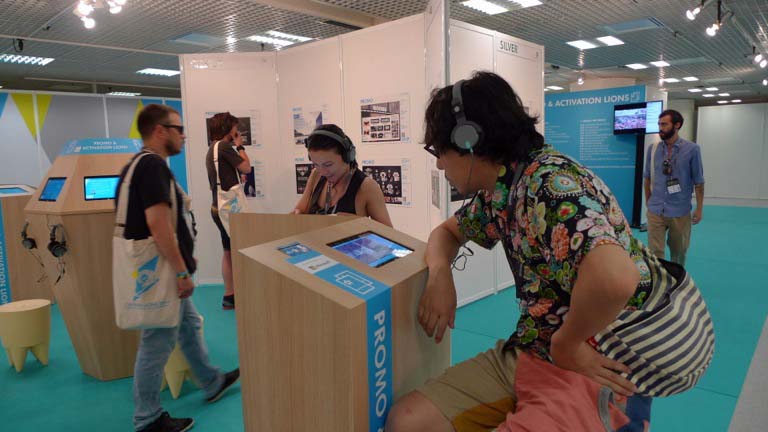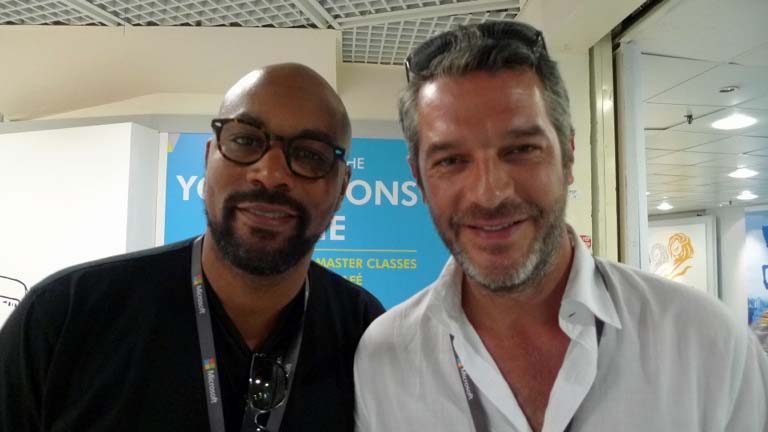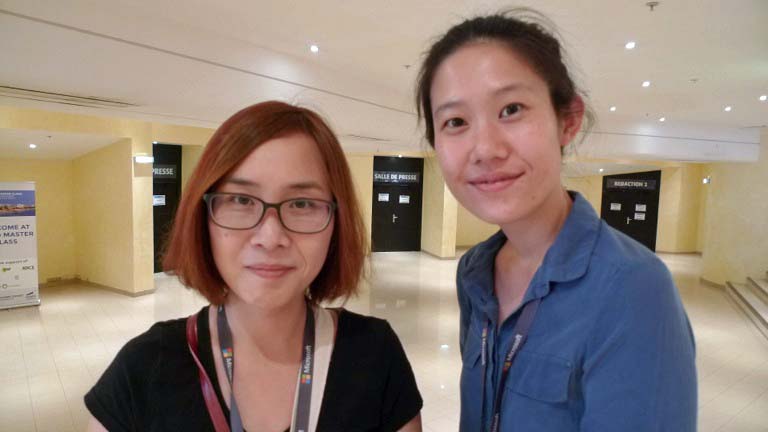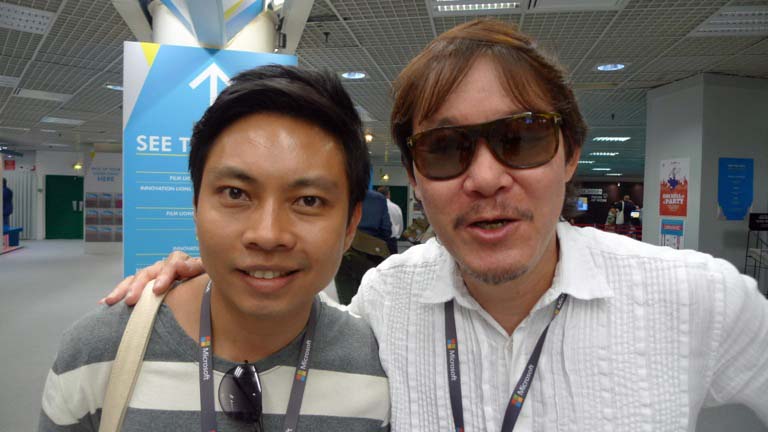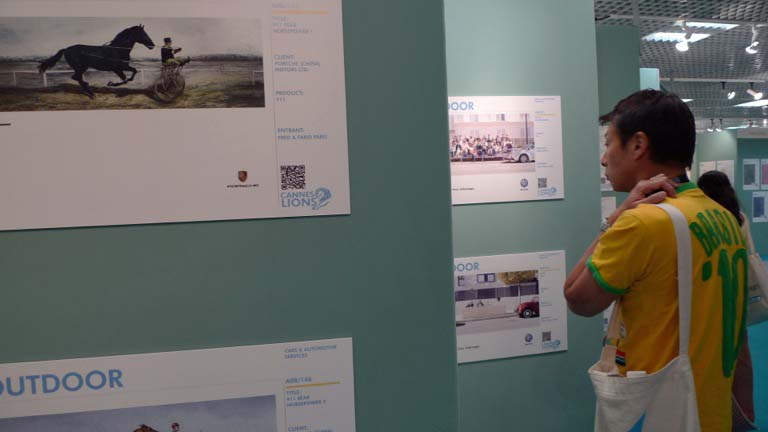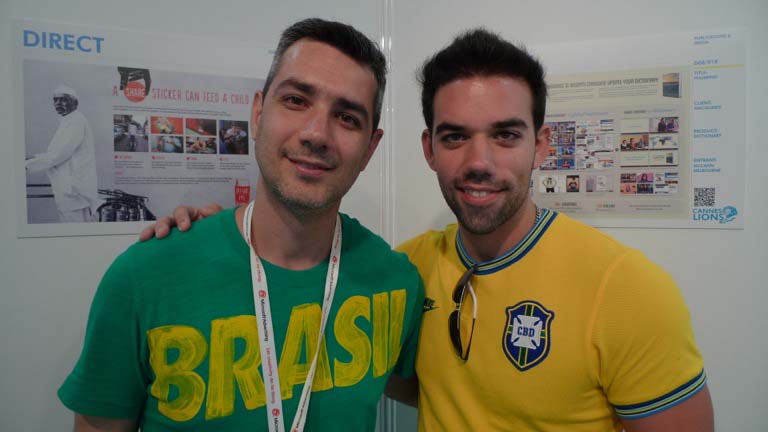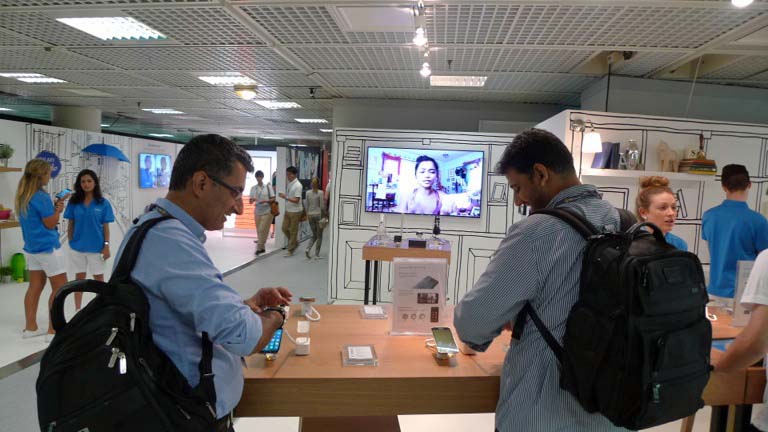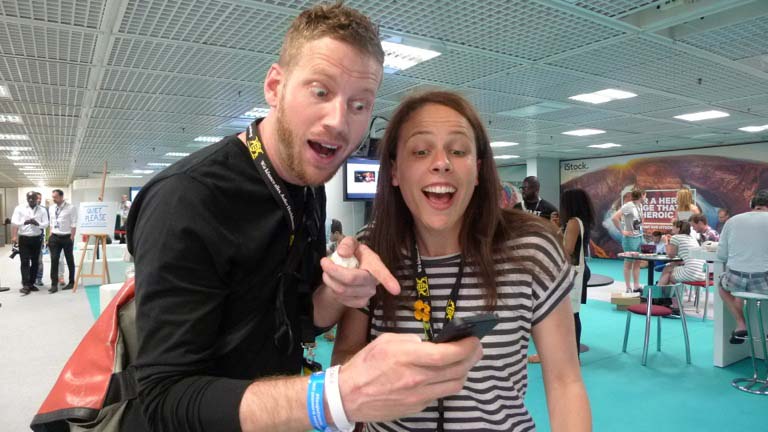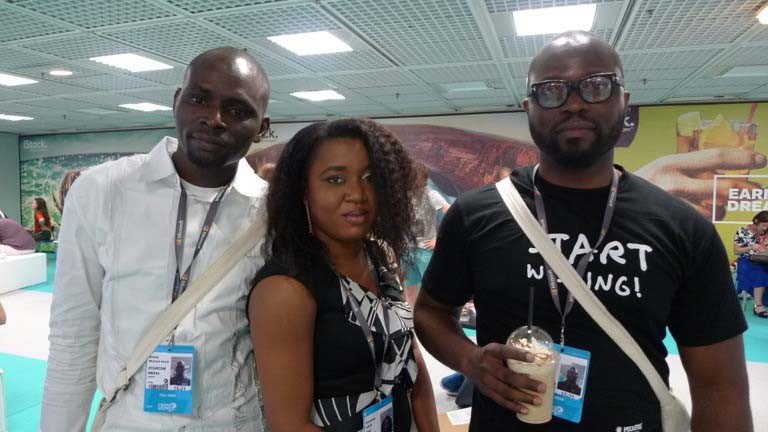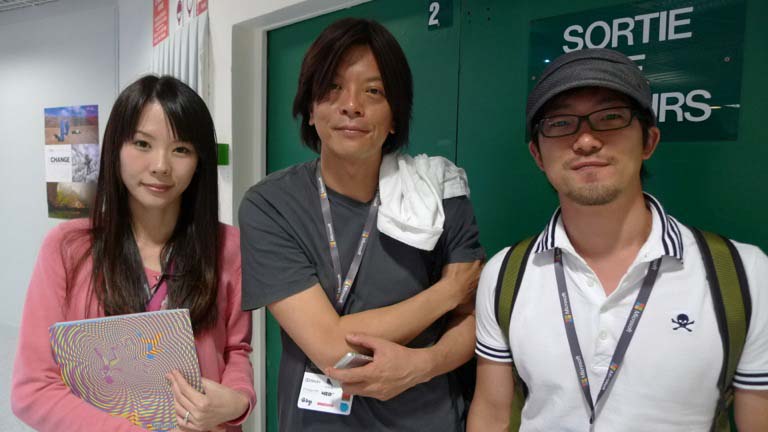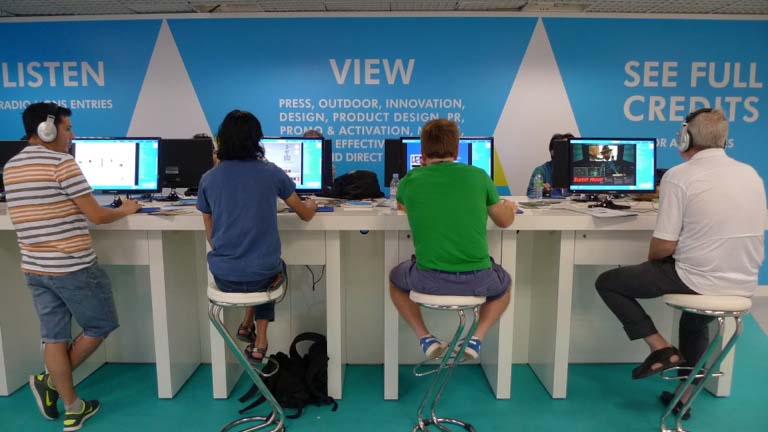Claire Davidson takes in the seminars at the Cannes Lions Festival of Creativity: Day 3
 Claire Davidson (left) is in Cannes this year and is reporting exclusively for Campaign Brief Asia. Here’s her round up of the speaker sessions on Day 2.
Claire Davidson (left) is in Cannes this year and is reporting exclusively for Campaign Brief Asia. Here’s her round up of the speaker sessions on Day 2.
My goodness. It’s only Tuesday. With the sheer volume of information, speaker sessions, attendees and events, it seems like the Lions have been on for a lot longer than two days… What’s it going to be like by day seven?
I am though, very excited, for what day three has in store.
The first seminar I took in today was a Ted Talk, which focused on “Beautiful Minds”. Our speakers were Beau Lotto, Professor of Neuroscience, University College London, Founder, Lotto Lab, CEO, Traces (those are some very impressive titles, I wonder if I’m in over my head here!), Tali Sharot, Neuroscientist and Bruno Guissani, European Director, Ted.
Ted trades in ideas – ideas worth spreading. Ted focuses on where creativity and technology meet, a place to tell stories and build stories.
We looked today at how our brains deal with perception and bias. In our creative world, understanding perception is key to understanding communication. Perception underpins every single thing that your brain does. Absolutely everything begins with perception. What is interesting begins with doubt. Are you really seeing the world as it really is? Think about it. Context is everything. We see meaning. Life is pretty straight-forward. It’s not simple, but it’s pretty straight-forward. We make decisions, and generally there are two options: we go towards something or away from something.
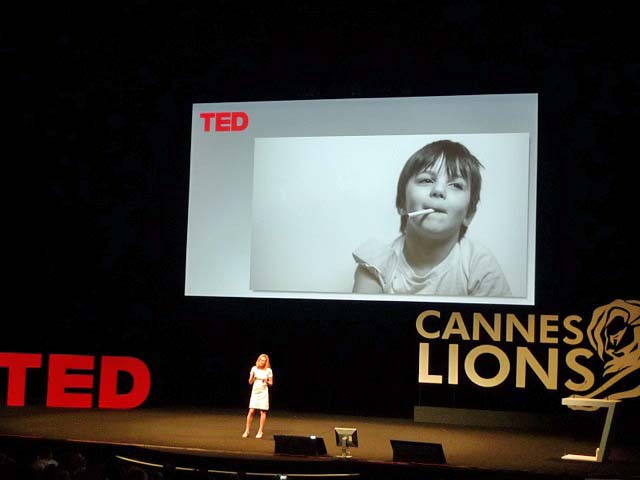 Every decision you make is grounded in your assumptions. What you do and who you are is defined by your assumptions, and we are almost always blind to our assumptions. In order to be creative, you have to discover what your assumptions are. Practice free will.
Every decision you make is grounded in your assumptions. What you do and who you are is defined by your assumptions, and we are almost always blind to our assumptions. In order to be creative, you have to discover what your assumptions are. Practice free will.
What makes the human mind beautiful? What makes us beautiful? Lotto tells us that it’s that we’re delusional, much to the amusement of all of the advertising folk in the room. That is the basis of culture. We imagine. We’re writers as well as readers. Humans are contextual. Why do we do what we do? We have multiple people inside us (gosh, that explains a lot!), and this changes depending on context. All information is meaningless. Your brain evolved to take information and give it meaning. Transform through understanding.
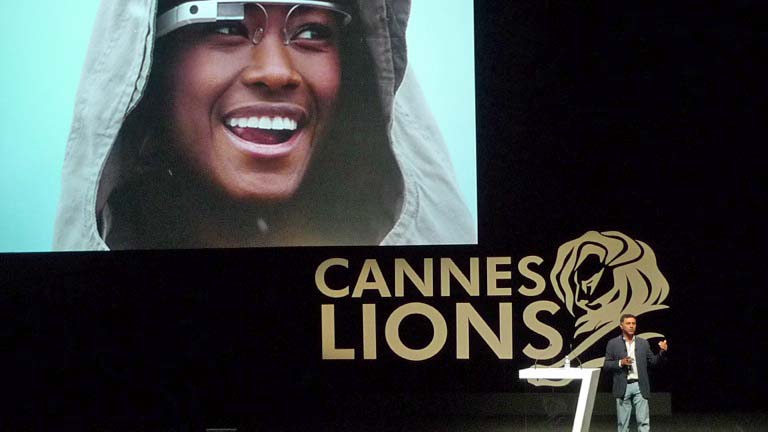 Nikesh Avora, Chief Business Officer from Google next brought us “A healthy disregard for the impossible”.
Nikesh Avora, Chief Business Officer from Google next brought us “A healthy disregard for the impossible”.
Google trains their team to have a different mindset to most of us. In doing so the company creates technology to radically improve the world. They know all too well that the changes in technology that have the greatest impact are almost always revolutionary, not evolutionary. Today, we are used to having technology with us all the time. It’s a given. We carry technology with us in our phones, being connected day in, day out. We are soon to have a future where everyone will have a phone in their hand.
So everything is connected to everything. Avora predicts that in the future technology will connect to technology. He went on to give us some valuable advice:
- Solve problems with first principles, from a ground up basis. Sometimes we try to solve problems by looking at all of the thought constraints around us, and this is restrictive.
- Make complex simple. Look at how Google makes extremely complex tasks simpler for us.
- Aspire to serve the world. We can use technology today to serve the world. Google have made it possible to create something that everyone in the world can use. There is an amazing benefit to having a platform that everyone can use. Take Youtube, Android and Gmail for example. Technology allows not just products and services that work for everyone but also these platforms that everyone can use.
We looked at some of Google’s own case studies for self-driving cars, a balloon-powered internet, Google Glass and Google Iris.
The aim of Google is to create something that can be accessed by all of us, everywhere, at every moment. As it continues to look at the future, Google asks is: it going to be useful for someone? Is it going to be useful for humanity? Everything we have in the world is at a tap of a button.
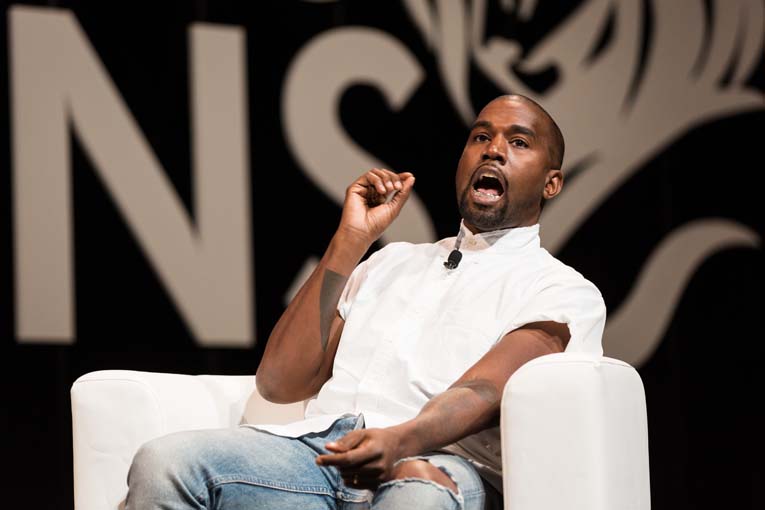
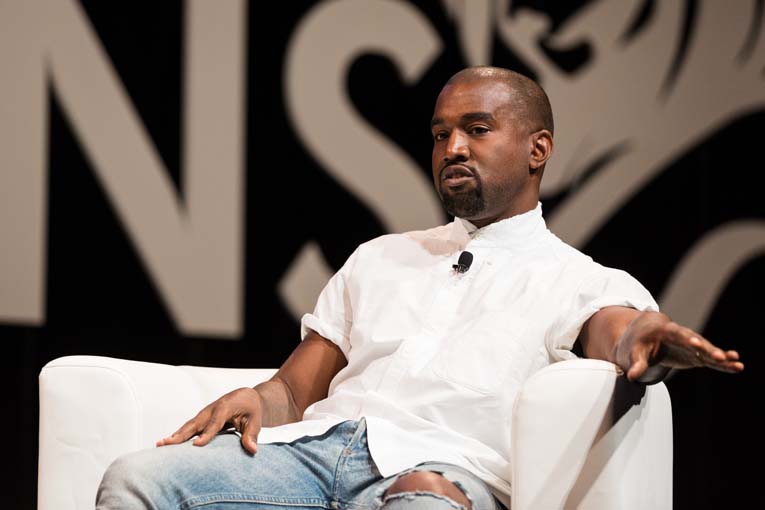 Kanye was in the house this afternoon. He sat on a panel with Steve Stoute, Founder + CEO, Translation and Ben Horowitz, Co-founder + Partner of Andreessen Horowitz. They brought us “Technology, Culture and Consumer Adoption: Learning to Read the Cultural Landscape”.
Kanye was in the house this afternoon. He sat on a panel with Steve Stoute, Founder + CEO, Translation and Ben Horowitz, Co-founder + Partner of Andreessen Horowitz. They brought us “Technology, Culture and Consumer Adoption: Learning to Read the Cultural Landscape”.
Today, these experts discussed why technology and culture need to be linked, also that brands need to identify more with their customers – and look out for where they may go next.
Reading today’s cultural landscape is complex. Technology plays a very important role in everyday life. This usability of technology and interface works well for consumers and makes our lives easier. Technology has made product selection more democratic. Consumers have more power today because of technology. Consumers are making brands overnight now. The internet allows for convenience.
This technology means a better way of doing things. There is always someone who is going to try to make things better. You must continue to innovate, otherwise you will die. Strong words indeed.
Consumers want to be part of a conversation. Kanye has 10.5 million Twitter followers. Snap! So do I!! (kidding). Interestingly, Kanye only follows one person, Kim. Awwwww. Kanye’s dream is to help raise the palette of a generation and be involved in production, distribution and advertising for whatever people are begging for, be it music, fashion, design or art.
The nature of collaboration and the role of content development is incredibly valuable. Technology and culture should work together. Industries that are co-dependent should work together.
We looked of course at the Apple and Beats by Dr Dre, and Samsung and Jay-Z collaborations. Here are companies who used culture to get into a conversation. Culture and creativity is worth something. Ideal companies are those based off the idea, rather than how much product they sell.
Look at authenticity and passion to make the right partnerships work. The most important relationships have shared values. What is authentically you, and what is authentically us? Articulate those values in a profound way, and build your model around that.
Kanye feels that during this fast food revolution of information and technology, everyone just works so quickly to get the next product out or get the new song on the radio. He went on to say that people are not taking the time to develop, to incubate. Everything is just sooooo fast. Often now you have to deliver the product before you’ve found the product. Rome wasn’t built in a day, but the internet is our new Rome, and we must not resist the future.
Kanye left us with ’empower the best content creators or fuck you’. He has spoken.
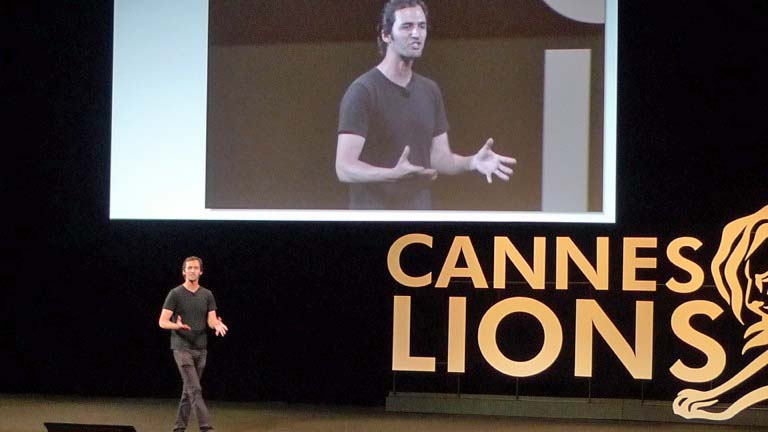 Next up for me was “Mind Trip – A Complete Reboot of the Way We See the World”. Futurist and Techno-Philosopher Jason Silver presented this, together with Mark Holden. I’ve never been to a seminar by a Futurist before, and my goodness, was Silver passionate about his craft.
Next up for me was “Mind Trip – A Complete Reboot of the Way We See the World”. Futurist and Techno-Philosopher Jason Silver presented this, together with Mark Holden. I’ve never been to a seminar by a Futurist before, and my goodness, was Silver passionate about his craft.
Silver asked us how we see the future that we are all walking into together. We picture the world around us by viewing only the past. So we’re not always looking at th
e present. But if we explore nanotechnology, biotechnology and extended consciousness, we might find some answers about what the future might hold. Um. This sounds very complicated…
Let’s take a look at a way in which the world may evolve that presently we find inconceivable. Technology is how we extend our creativity out into the world. Technology is how we impregnate the world with mindedness. It has a capacity to extend our will, to extend our agency into the world. Our brains evolved at a linear and local level, but we don’t live in that world anymore – we now live in a global and exponential world.
So transcend your mental models, and reset your memory systems through media. We humans have the capacity to overcome boundaries. To be human is to be transhuman, to extend the cognitive reach of our mind and extensions of our selves. Re-define and extend what it means to be human. Look into ourselves to see what we wish to become. Redefine what it is to be a homo sapien. The rules of what it means to be human are up for grabs, and we will become something more. The future of us is ours to dream up.
We transform and transcend. It never stops.
Technology is us. Technology is not natural. Technology emerged from us. Technology can extend our capacity. Where are we going? Probe at the parameters of the possible. The adjacent possible will help us to reinvent the present. Confused? I am.
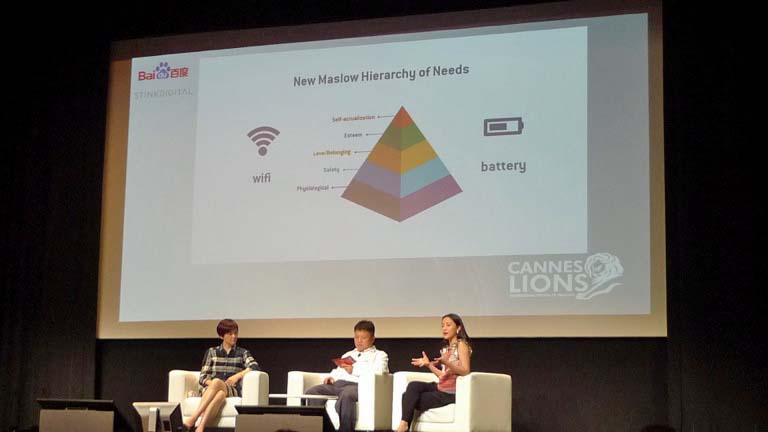
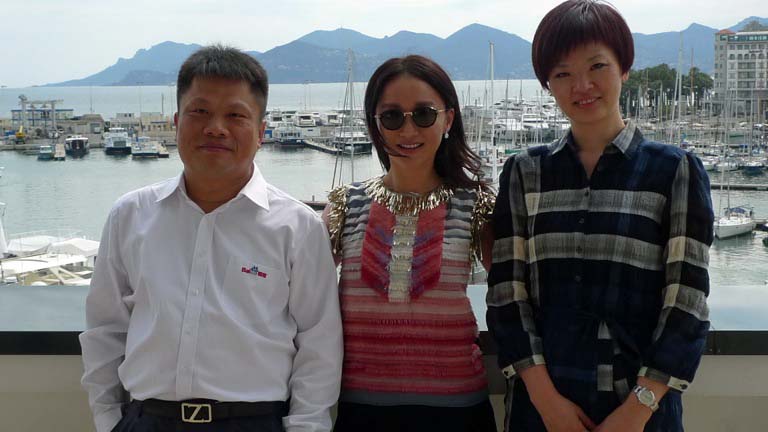
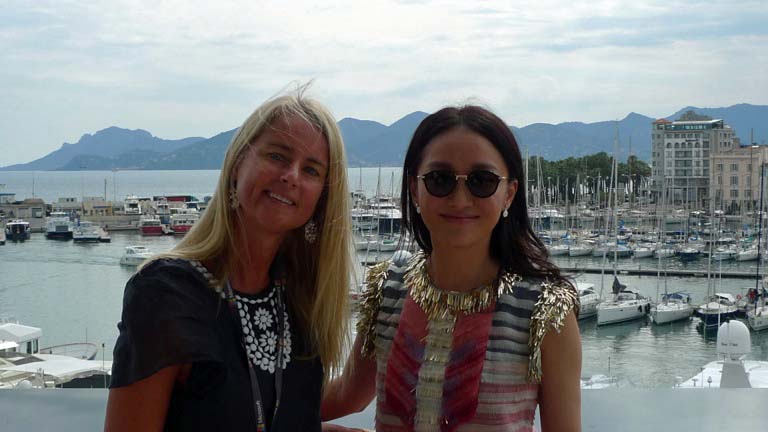 Lastly today I went to the forum ‘Women In China: The New Digital Generation’. This was a panel discussion with Liang Zeng, VP, Baidu, Zhou Xun, Actress and Christine Xu, VP + CMO, McDonald’s China.
Lastly today I went to the forum ‘Women In China: The New Digital Generation’. This was a panel discussion with Liang Zeng, VP, Baidu, Zhou Xun, Actress and Christine Xu, VP + CMO, McDonald’s China.
Search volume is the most direct part of big data. In Chinese women’s eyes, the best entertainer in the world is Justin Bieber. Their favourite sports star is Kobe Bryant. Their favourite tourist destination is South Korea. For Chinese men it’s the USA. The number one searched term by Chinese females is ‘weight loss’. Chinese men are most afraid of becoming poor, whereas for women it’s aging. Interesting facts.
Baidu is the biggest search engine in China, and it uses big data to get a better understanding of Chinese women in the digital world. They have a huge consumer database, and thus have the information to look at how brands could best target and connect to their female Chinese customers.
Women invest online 20% more than men. Women drive economic activity. Their attitudes to spending, coupled with transformation in lifestyle, have changed in recent years, and this impacts on brand marketing.
So Chinese companies are jumping on this information and shifting some their focus to digital products for Chinese women. An example of this is Auntie App. This helps to track your period and has 40 million users. We looked also at further case studies by Olay, Pepsi and McDonalds.
Behind every man is a successful woman. Behind every successful woman is big data!
Well that’s it for me today. I don’t think I’ve written technology enough.
Claire Davidson, Executive Producer ASIA & MENA @ The SweetShop, reporting for Campaign Brief Asia at Cannes Lions 2014.
